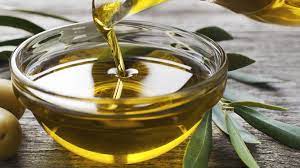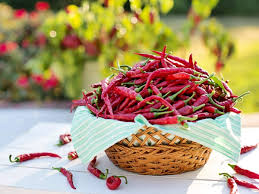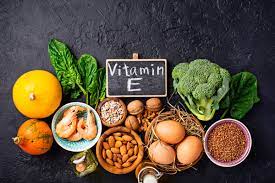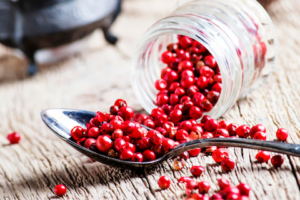During the monsoon season, incorporating certain fruits into your diet can indeed aid in weight loss. Fruits are generally low in calories and high in fiber, making them a great choice for weight management. Here are five monsoon fruits that can help you lose weight:
Watermelon:
Watermelon is a hydrating fruit with a high water content, making it an excellent choice for weight loss. It is low in calories, rich in fiber, and helps keep you full for longer. Additionally, it contains a compound called citrulline, which may support weight loss.
Watermelon is a delicious and hydrating fruit that is often associated with the summer season. It is not only refreshing but also offers several health benefits. Here’s some information about watermelon:
- Hydration: Watermelon is composed of about 90% water, making it an excellent choice for staying hydrated, especially during hot summer months or the monsoon season. Proper hydration is essential for overall health and supports various bodily functions.
- Low in Calories: Watermelon is relatively low in calories, with approximately 30 calories per 100 grams. It can be a satisfying snack option for weight management or when trying to lose weight. Its high water and fiber content contribute to a feeling of fullness, potentially reducing calorie intake.
- Nutrient Content: Watermelon is a good source of vitamins A and C, which act as antioxidants and support immune function. It also contains some amounts of potassium, which is essential for maintaining proper heart health and regulating blood pressure.
- Lycopene: Watermelon is particularly rich in the antioxidant lycopene, responsible for its vibrant red color. Lycopene has been associated with various health benefits, including reducing the risk of certain types of cancer, improving heart health, and promoting healthy skin.
- Hydrating Electrolytes: In addition to water, watermelon contains electrolytes such as potassium and magnesium, which are essential for maintaining proper hydration and supporting muscle function.
- Eye Health: Watermelon is a source of beta-carotene, which is converted into vitamin A in the body. Vitamin A is important for maintaining healthy eyesight and preventing age-related macular degeneration.
- Digestion: Watermelon is high in water and contains a good amount of fiber, which can aid digestion and prevent constipation.
Remember that while watermelon is a healthy fruit, it is still important to consume it as part of a balanced diet. Enjoy it as a refreshing snack, in fruit salads, or as a hydrating addition to smoothies.
Also Read: WELLHEALTHORGANIC.COM:11-HEALTH-BENEFITS-AND-SIDE-EFFECTS-OF-OLIVES-BENEFITS-OF-OLIVES
Papaya:
Papaya is a tropical fruit that is available during the monsoon season. It is low in calories and contains an enzyme called papain, which aids digestion and helps in weight management. Papaya is also a good source of fiber and contains antioxidants that promote overall health.
Papaya is a tropical fruit known for its vibrant orange flesh and sweet taste. It offers a range of health benefits and can be a valuable addition to your diet. Here’s some information about papaya:
- Digestive Health: Papaya contains an enzyme called papain, which aids in digestion by breaking down proteins. This enzyme can help improve digestion and prevent digestive issues like bloating and constipation. Papaya also contains dietary fiber, which adds bulk to the stool and supports regular bowel movements.
- Nutrient-Rich: Papaya is rich in essential vitamins and minerals. It is particularly high in vitamin C, which is important for immune function, collagen production, and antioxidant protection. Papaya also provides vitamin A, vitamin E, folate, potassium, and magnesium.
- Antioxidant Properties: Papaya contains several antioxidants, including vitamin C, beta-carotene, and lycopene. These antioxidants help neutralize harmful free radicals in the body, reducing oxidative stress and lowering the risk of chronic diseases such as heart disease and certain types of cancer.
- Eye Health: The high levels of vitamin C and vitamin A in papaya are beneficial for eye health. Vitamin C helps reduce the risk of age-related macular degeneration, while vitamin A is essential for good vision.
- Anti-Inflammatory Effects: Papaya contains compounds, such as papain and chymopapain, that possess anti-inflammatory properties. Regular consumption of papaya may help reduce inflammation in the body and alleviate symptoms associated with conditions like arthritis.
- Skin Health: The antioxidants found in papaya, including vitamin C, can help promote healthy skin by protecting against damage caused by free radicals. Additionally, papaya contains an enzyme called papain, which is often used in skincare products to exfoliate and brighten the skin.
- Weight Loss: Papaya is low in calories and high in fiber, making it a suitable fruit for weight loss or weight management. The fiber content helps promote satiety, keeping you full for longer and potentially reducing calorie intake.
When selecting papaya, choose one that is slightly soft to the touch and has a sweet aroma. You can enjoy papaya on its own, add it to fruit salads, blend it into smoothies, or even use it in savory dishes like salsas. However, it’s important to note that some individuals may have an allergy or sensitivity to papaya, so it’s best to consult with a healthcare professional if you have any concerns.
Guava:
Guava is a nutritious fruit that is abundant during the monsoon season. It is low in calories, high in fiber, and rich in vitamins A and C. The high fiber content of guava can help regulate digestion and promote satiety, making it a suitable fruit for weight loss.
Guava is a tropical fruit that is highly nutritious and offers several health benefits. It has a unique flavor and can be enjoyed in various forms, such as raw, juiced, or incorporated into recipes. Here’s some information about guava:
- Rich in Vitamins and Minerals: Guava is a powerhouse of nutrients. It is particularly high in vitamin C, with one guava providing more than double the daily recommended intake of this vitamin. Guava also contains vitamins A, E, and K, as well as minerals like potassium, magnesium, and fiber.
- Immune System Support: The high vitamin C content in guava strengthens the immune system, helping to protect against common illnesses and infections. Vitamin C acts as an antioxidant, neutralizing harmful free radicals and supporting the body’s natural defense mechanisms.
- Digestive Health: Guava is rich in dietary fiber, which aids digestion and promotes regular bowel movements. It can help prevent constipation and maintain a healthy digestive system. Guava also contains enzymes that facilitate the breakdown of proteins and aid digestion.
- Antioxidant Properties: Guava is packed with antioxidants, including vitamin C, flavonoids, and carotenoids. These antioxidants help reduce oxidative stress in the body, protect against cell damage, and lower the risk of chronic diseases such as heart disease and certain cancers.
- Blood Sugar Regulation: Guava has a low glycemic index, meaning it releases sugar into the bloodstream at a slow and steady pace. This property can help regulate blood sugar levels and prevent spikes, making it a suitable fruit for individuals with diabetes or those looking to manage their blood sugar.
- Eye Health: Guava contains antioxidants such as vitamin C, vitamin A, and carotenoids, which are beneficial for eye health. These antioxidants help protect the eyes from oxidative stress and reduce the risk of age-related macular degeneration.
- Weight Management: Guava is relatively low in calories and high in fiber, making it a satisfying fruit for those aiming to lose weight or maintain a healthy weight. The fiber content promotes satiety and can help control hunger cravings.
You can enjoy guava by eating it fresh, adding it to fruit salads, blending it into smoothies, or even using it in sauces and desserts. Remember to choose ripe guavas that have a pleasant aroma and yield slightly to pressure.
Pears are a delicious fruit that is in season during the monsoon. They are low in calories and packed with dietary fiber, which can help control hunger and prevent overeating. Pears also contain vitamins and antioxidants that contribute to overall health.
Pears are sweet and juicy fruits that come in a variety of flavors and textures. They offer numerous health benefits and can be enjoyed fresh, baked, or incorporated into various dishes. Here’s some information about pears:
- Fiber-Rich: Pears are an excellent source of dietary fiber, both soluble and insoluble. Fiber aids digestion promotes regular bowel movements, and helps prevent constipation. It also contributes to a feeling of fullness, making pears a satisfying fruit for weight management.
- Nutrient Content: Pears are rich in essential vitamins and minerals. They contain vitamin C, which supports immune function and acts as an antioxidant. Pears also provide vitamin K for bone health and small amounts of other vitamins like vitamin A, E, and B-complex vitamins. In terms of minerals, pears offer potassium, copper, and a small amount of iron.
- Antioxidant Power: Pears contain various antioxidants, such as flavonoids, carotenoids, and vitamin C. These antioxidants help protect cells from damage caused by harmful free radicals and may contribute to reducing the risk of chronic diseases like heart disease, certain cancers, and age-related macular degeneration.
- Hydration: Pears have a high water content, contributing to hydration and promoting healthy skin. Staying hydrated is important for overall health and helps maintain proper bodily functions.
- Heart Health: The fiber and potassium content in pears can have positive effects on heart health. Dietary fiber helps lower cholesterol levels, while potassium helps regulate blood pressure. Both factors are crucial for maintaining a healthy cardiovascular system.
- Weight Management: Pears are relatively low in calories and high in fiber, making them a satisfying snack for weight loss or weight maintenance. The fiber content helps control appetite and promotes feelings of fullness, potentially reducing overall calorie intake.
- Gut Health: Pears contain a type of soluble fiber called pectin, which acts as a prebiotic. Prebiotics nourish beneficial gut bacteria, promoting a healthy gut microbiome and supporting digestive health.
When choosing pears, look for ones that are firm but yield slightly to gentle pressure. You can enjoy pears as a standalone snack, add them to salads, blend them into smoothies, or use them in various recipes like desserts, baked goods, or poached pears. Remember to wash the fruit thoroughly before consuming and consider eating the skin, as it contains additional nutrients and fiber.
Also Read: WELLHEALTHORGANIC.COM:ALCOHOL-CONSUMPTION-GOOD-FOR-HEART-HEALTH-NEW-STUDY-SAYS-NO
Plums:
Plums are a juicy fruit that is available during the monsoon season. They are low in calories and high in fiber, which aids digestion and promotes a feeling of fullness. Plums are also rich in antioxidants and can be a satisfying and healthy snack for weight loss.
Plums are delicious stone fruits that come in a variety of colors, including red, purple, and yellow. They offer several health benefits and can be enjoyed fresh or used in various culinary preparations. Here’s some information about plums:
- Nutrient-Rich: Plums are packed with essential nutrients. They are a good source of vitamins A, C, and K, as well as dietary fiber. Plums also contain minerals like potassium and copper.
- Digestive Health: Plums are known for their natural laxative properties. They contain dietary fiber, sorbitol, and isatin, which can help promote regular bowel movements and prevent constipation. The fiber in plums also supports overall digestive health.
- Antioxidant Power: Plums are rich in antioxidants, including phenolic compounds and vitamin C. These antioxidants help protect the body against oxidative stress, reduce inflammation, and contribute to overall health.
- Bone Health: Plums contain vitamin K, which plays a vital role in bone health and proper blood clotting. Consuming foods rich in vitamin K, like plums, can help maintain healthy bones and reduce the risk of osteoporosis.
- Weight Management: Plums are relatively low in calories and high in fiber, making them suitable fruit for weight management. The fiber content promotes satiety and helps control appetite, potentially aiding in weight loss or maintenance.
- Heart Health: The antioxidants and fiber in plums contribute to heart health. They help reduce oxidative stress, lower inflammation, and maintain healthy cholesterol levels. The potassium content in plums also supports heart health by regulating blood pressure.
- Skin Health: The antioxidants present in plums can help protect the skin from damage caused by free radicals. They contribute to healthy skin by reducing signs of aging, promoting collagen synthesis, and maintaining skin elasticity.
- When selecting plums, choose ones that are plump, firm, and have a vibrant color. You can enjoy them as a snack, add them to salads or yogurt, or use them in baked goods and desserts. Remember to wash them thoroughly before consuming them.
As with any food, moderation is key. While plums offer numerous health benefits, it’s important to consume them as part of a balanced diet that includes a variety of foods from different food groups. If you have any specific health concerns or conditions, it’s best to consult with a healthcare professional or registered dietitian for personalized advice.
Remember that while these fruits can support weight loss, it’s essential to maintain a balanced diet and engage in regular physical activity for optimal results. Additionally, consult with a healthcare professional or nutritionist for personalized advice based on your specific needs and health conditions.
Conclusion
In conclusion, incorporating fruits like watermelon, papaya, guava, pears, and other nutritious options into your diet during the monsoon season can support your weight loss goals. These fruits are low in calories, high in fiber, and offer various vitamins, minerals, and antioxidants that promote overall health. They can help keep you hydrated, aid digestion, regulate blood sugar levels, support the immune system, and contribute to a healthy heart.
However, it’s important to remember that while these fruits can be beneficial for weight loss, they should be part of a well-balanced diet that includes a variety of foods from different food groups. Additionally, maintaining an active lifestyle and engaging in regular exercise will complement your weight loss efforts.
Also Read: WELLHEALTHORGANIC.COM:FACIAL-FITNESS-ANTI-AGING-FACIAL-EXERCISES-TO-LOOK-YOUNGER-EVERY-DAY
FAQ
Q: Can eating these fruits alone help me lose weight?
A: While incorporating these fruits into your diet can support weight loss, it’s important to maintain a well-rounded, balanced diet overall. These fruits are low in calories and high in fiber, which can help control hunger and promote satiety. However, for effective weight loss, it’s essential to consider your overall calorie intake, portion sizes, and the composition of your meals, including protein, healthy fats, and other nutrients. Additionally, regular physical activity and lifestyle factors play a significant role in achieving and maintaining weight loss.
Q: Can I consume these fruits in any form, such as juices or smoothies?
A: While these fruits can be consumed in various forms, it’s generally recommended to consume them in their whole, unprocessed form to maximize their nutritional benefits. Whole fruits contain dietary fiber, which helps slow down digestion and promotes fullness. Juicing or blending fruits into smoothies can remove or reduce the fiber content and increase the overall sugar concentration. If you choose to have juices or smoothies, it’s advisable to include the pulp or fiber and avoid adding additional sugars or sweeteners.
Q: How many servings of these fruits should I have per day?
A: The recommended daily intake of fruits can vary depending on factors such as age, sex, and activity level. In general, it is recommended to consume 2 to 3 servings of fruits per day as part of a balanced diet. This can be spread throughout the day, and you can include a variety of fruits to obtain a wide range of nutrients. However, it’s best to consult with a healthcare professional or a registered dietitian to determine the specific serving size and recommendations based on your individual needs and dietary goals.
Q: Are there any side effects or precautions I should consider when consuming these fruits?
A: These fruits are generally safe for consumption and offer numerous health benefits. However, some individuals may have specific allergies or sensitivities to certain fruits. If you have known allergies or sensitivities, it’s important to avoid those particular fruits. Additionally, if you have any underlying health conditions or are taking medications, it’s recommended to consult with a healthcare professional or registered dietitian before making significant changes to your diet, including the incorporation of new fruits. They can provide personalized advice and address any specific concerns or precautions related to your health situation.






















